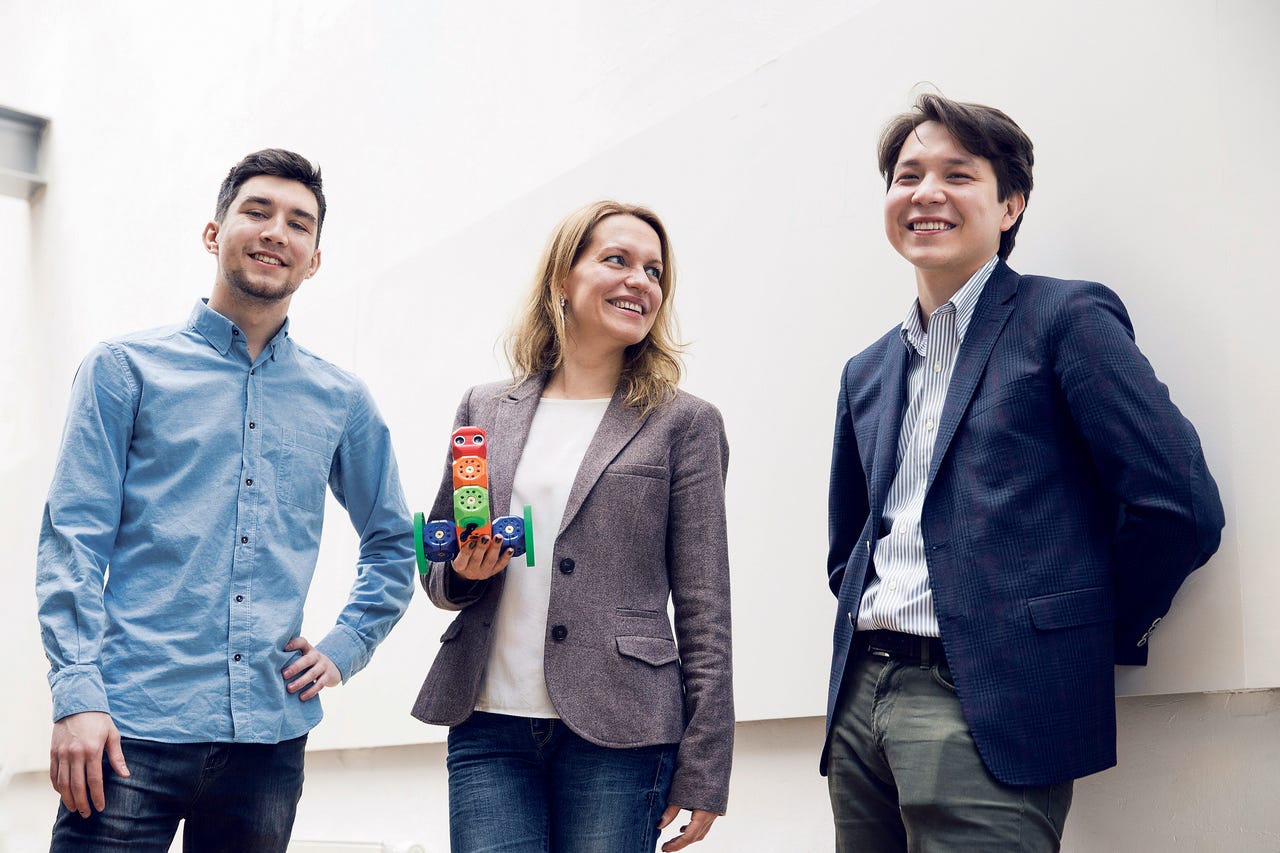Robo Wunderkind wants to teach children to be robot creators


Robo Wunderkind founding team: Yuri Levin, Anna Larotska, and Rustem Akishbekov.
As robots increasingly replace humans in the workplace, those who possess the skills to build and program robots will have a distinct advantage, according to Vienna-based startup Robo Wunderkind.
As the "robotic revolution" beckons, Robo Wunderkind wants to take a proactive approach by equipping children as young as five years old with some of the skills required to become robot creators.
"We plan to make robotics a child's play," said Rustem Akishbekov, who founded Robo Wunderkind in 2013, roping in co-founders Anna Larotska and Yuri Levin shortly after.
The startup does this by developing modular programmable robots for children, who can snap the building blocks -- which are Lego compatible -- together in different configurations to build their creation.
The building blocks' colours relate to their functions. For example, red are sensors, blue are motors, and orange is the main controller. The most advanced set comes with a digital camera, line follower, motion sensor, and infrared blaster.
The robot can then be programmed using the Robo Code app, which recognises how the components of the robot are assembled and suggests possible functions. The child just needs to select actions via corresponding symbols and drag and drop them to make a sequence.
Children can make the robots drive around, record and play sounds, take pictures, and solve mazes, using the Robo Play app.
"While some people speculate about robots taking away our jobs, we want our kids to grow up building robots. Technology is becoming more and more complex, and kids who are given the opportunity to learn how it works and how everyday devices are interconnected will have a definite advantage," said Akishbekov.
The startup ran a Kickstarter campaign in late 2015, through which it raised a little over $246,000 from 1,100 backers. Last year, Robo Wunderkind received an investment of $500,000 from investors such as SOSV and Arkley VC.
Thus far, the startup has received about 3,000 pre-orders largely from Austria, Australia, the Netherlands, and the US.
Robo Wunderkind is currently paying close attention to Australia -- its second largest market based on pre-orders -- as the nation's government increases its investment into science, technology, engineering, and mathematics (STEM) education for children.
The startup recently partnered with Australian coding school Runstem, which will be using Robo Wunderkind's robots to deliver robotics classes to children later in the year.
Akishbekov said the startup is working on new applications and modules with the goal of making the robots appealing to several target groups.
"The plan is to build a worldwide distribution system and to give young customers from everywhere a chance to learn coding and robotics in a fun and simple way," Akishbekov added.